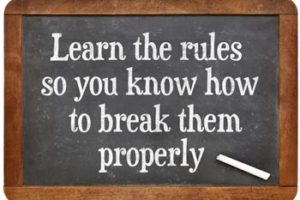
Are You Dedicated to Better Writing?
Today’s post is an edited excerpt from the introduction to 10 Core Practices for Better Writing, a book that aims to impart best practices in the craft of writing. “When I’m writing, I know I’m doing the thing I was born to do.” — Anne Sexton Words. They have the power to captivate the imagination,…Read More

Sneak Peek at “10 Core Practices for Better Writing” — Read More and Write Better
Today I’d like to share an excerpt from my book, 10 Core Practices for Better Writing. The book explores ten essential habits that every writer can adopt to become a master of the craft of writing. Today’s post features several excerpts from the first chapter, which covers the first and most important practice: reading. If…Read More

The Benefits of Keeping a Reading Journal
I’ve kept a journal on and off since I was a kid. My journals are full of poetry, drawings, story ideas, and random thoughts. I’ve always wanted to keep a reading journal, but I usually inhale books, leaving little time between chapters to jot down my thoughts. I like to read at night, and by…Read More

How Developmental Editing Improves Your Writing
We usually think of editing as a process that cleans up our grammar, spelling, punctuation, and sentence structure. But developmental editing is a little different. A developmental editor looks at the content and structure of a writing project, paying little (or no) heed to the mechanics of the language. Developmental edits are for projects that…Read More

What’s Wrong with Adjectives and Adverbs?
“The road to hell is paved with adverbs.” – Stephen King It’s not unusual for writing experts to recommend keeping adjectives and adverbs to a minimum. But many writers prefer to laden their language with modifiers, usually as a way to provide more detail and description for readers. And young and new writers tend to overuse…Read More

Should Beginning Writers Imitate the Greats?
Learning often begins with imitation or copying. As babies, we learn facial expressions and gestures by mimicking adults. Children learn to write their letters by copying them from workbooks. And can you imagine a musician learning their craft without first leaning to play other musicians’ songs? But we rarely explore the question of whether writers…Read More

How to Prepare to Work with Beta Readers
Beta readers are people who read your manuscript before you polish it for publication or submission to a literary agent or publisher. Unlike editors, beta readers are unpaid volunteers who provide feedback that you can use to make improvements to your work. However, before you round up your beta readers, you should have a plan…Read More

How to Develop a Beneficial Writing Process
Today I’d like to share a few excerpts from my book 10 Core Practices for Better Writing. These excerpts are from “Chapter Six: Process,” which examines methods, strategies, and other approaches to developing and fine-tuning a writing process that works for you. Understanding The Writing Process “I always worked until I had something done…Read More

Critiques Make Your Writing Better, So Grin and Bear Them
Today I’d like to share an excerpt from my book 10 Core Practices for Better Writing. This excerpt is from “Chapter Seven: Feedback,” which offers tips for giving and receiving critiques as well as coping with public criticism. The excerpt I’ve chosen to share today explains how to use critiques to make your writing better,…Read More

Breaking the Rules: When Good Grammar Goes Bad
Today’s post is an excerpt from 10 Core Practices for Better Writing. Enjoy! “And all dared to brave unknown terrors, to do mighty deeds, to boldly split infinitives that no man had split before—and thus was the Empire forged.” — Douglas Adams Everyone knows the old saying: rules were made to be broken. But some…Read More



